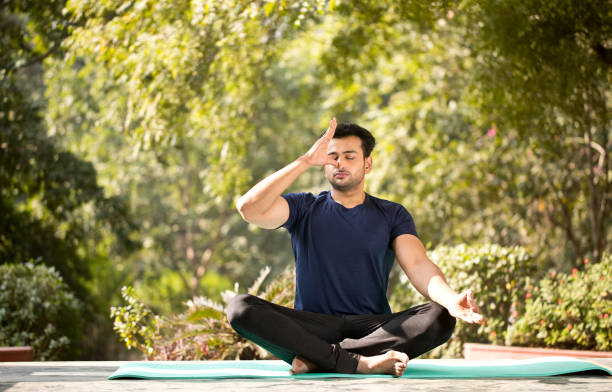
In a world that’s constantly buzzing with distractions, stress, and information overload, meditation has emerged as a powerful practice for achieving inner calm, clarity, and emotional balance. But did you know that meditation isn’t a one-size-fits-all solution? There are many different types of meditation, each with its own technique, purpose, and benefits.
Different types of meditation can help a man live longer. It will protect him against major issues. It will also allow our man to avoid critical issues that would have made him depend on Cenforce 150 pills.
Whether you're new to meditation or looking to explore new styles, this guide will introduce you to the most popular types of meditation so you can find the one that suits your lifestyle and mental health goals.
1. Mindfulness Meditation
Origin: Buddhist tradition
Best For: Stress reduction, mental clarity, self-awareness
Mindfulness meditation is about being present in the moment paying close attention to your thoughts, sensations, and surroundings without judgment. For a man, it also allows him to get rid of factors such as anxiety or stress that can often affect multiple aspects of life. Indirectly it will also allow you to have a better intimate life without depending on Fildena 150 pills.
How to Practice:
- Sit quietly and focus on your breath.
- Acknowledge passing thoughts without reacting to them.
- Gently return your focus to your breath when your mind wanders.
Benefits:
- Reduces anxiety and depression
- Improves focus and concentration
- Encourages emotional regulation
2. copyright (TM)
Origin: Vedic tradition
Best For: Deep relaxation, reducing chronic stress, improving creativity
copyright involves silently repeating a specific mantra—a word or sound—assigned by a certified teacher, for about 20 minutes, twice daily.
How to Practice:
- Sit comfortably with closed eyes.
- Silently repeat your personal mantra.
- Let your mind transcend active thinking.
Benefits:
- Promotes deep rest and relaxation
- Lowers blood pressure
- Increases mental energy and productivity
3. Loving-Kindness Meditation (Metta)
Origin: Buddhist tradition
Best For: Cultivating compassion, forgiveness, and empathy
Also known as Metta meditation, this practice encourages you to generate feelings of love and kindness towards yourself and others.
How to Practice:
- Begin by sending love to yourself.
- Gradually extend warm thoughts to friends, strangers, and even enemies.
- Use affirmations like “May I be happy. May I be safe.”
Benefits:
- Increases empathy and compassion
- Reduces anger and resentment
- Enhances positive emotions
4. Body Scan Meditation
Origin: Mindfulness-Based Stress Reduction (MBSR)
Best For: Body awareness, stress relief, physical relaxation
This type of meditation involves slowly focusing on different parts of the body, usually from the toes up to the head, to observe and release tension.
How to Practice:
- Lie down or sit comfortably.
- Bring awareness to one body part at a time.
- Notice any sensations without judgment.
Benefits:
- Helps manage chronic pain
- Reduces stress and tension
- Improves sleep quality
5. Zen Meditation (Zazen)
Origin: Zen Buddhism
Best For: Spiritual insight, self-discipline, focus
Zen meditation involves strict posture, focused breathing, and being aware of your thoughts without attaching to them. It often takes place in a quiet, minimal setting.
How to Practice:
- Sit in lotus or half-lotus position.
- Keep your spine straight and hands in a specific mudra.
- Focus on breathing or a philosophical question (koan).
Benefits:
- Enhances spiritual awareness
- Promotes mental clarity and emotional stability
- Improves posture and discipline
6. Chakra Meditation
Origin: Indian yogic tradition
Best For: Energy balance, emotional healing, spiritual growth
Chakra meditation focuses on aligning and opening the body’s energy centers, known as chakras. It often involves visualization, sound, or chanting.
How to Practice:
- Visualize each chakra with its associated color.
- Use corresponding mantras (e.g., “Lam” for root chakra).
- Focus on breathing and energy flow.
Benefits:
- Balances emotional and physical energy
- Enhances self-awareness and inner peace
- Supports overall well-being
7. Movement-Based Meditation
Types: Yoga, Tai Chi, Qigong
Best For: Physical fitness, mindfulness in motion
Unlike traditional seated meditation, these practices integrate gentle movements with breath awareness and mental focus.
How to Practice:
- Follow structured sequences or flows.
- Move slowly and with intention.
- Synchronize breath with movement.
Benefits:
- Improves flexibility and balance
- Reduces stress while promoting physical health
- Increases mindfulness during daily activities
8. Guided Meditation
Best For: Beginners, stress management, goal visualization
This form involves listening to a recorded voice or live instructor who walks you through a relaxing journey, visualization, or affirmation process.
How to Practice:
- Find a guided audio/video online or use a meditation app.
- Choose a theme (e.g., sleep, gratitude, healing).
- Sit or lie down comfortably and follow the instructions.
Benefits:
- Eases anxiety and insomnia
- Supports emotional healing
- Ideal for those with busy or overactive minds
Final Thoughts
With so many types of meditation available, the key is to experiment and find the one that resonates with you. You don’t need to commit to just one many people blend practices based on their emotional, spiritual, and physical needs.
Start small, stay consistent, and allow yourself the space to grow through the practice. Over time, you’ll discover that meditation isn’t about escaping your life but fully arriving in it.
FAQs
Q: How long should I meditate as a beginner?
A: Start with 5–10 minutes daily and gradually increase to 20–30 minutes as you become more comfortable.
Q: Do I need to sit cross-legged to meditate?
A: Not necessarily. Comfort is key. You can sit in a chair, lie down, or even walk mindfully.
Q: Can meditation replace therapy or medication?
A: Meditation supports mental health but should not replace medical treatment or professional therapy without guidance.
Q: Is meditation religious?
A: While some types have spiritual roots, most meditation practices can be done in a secular and scientific context.